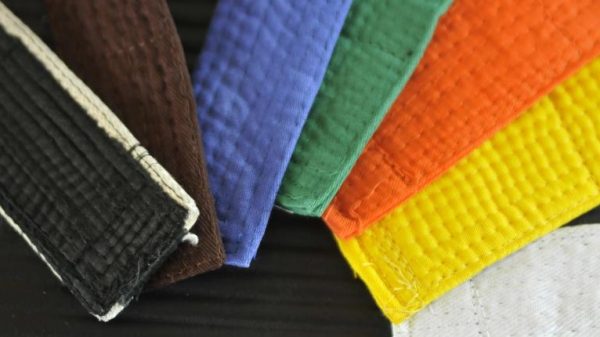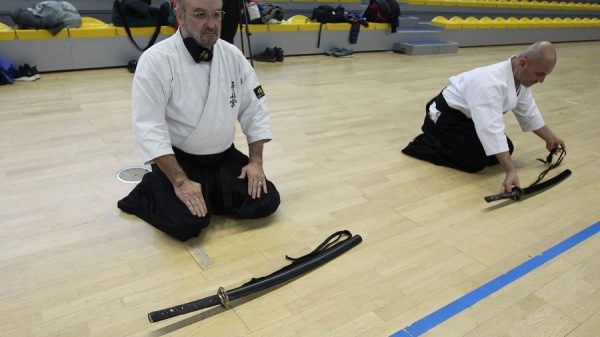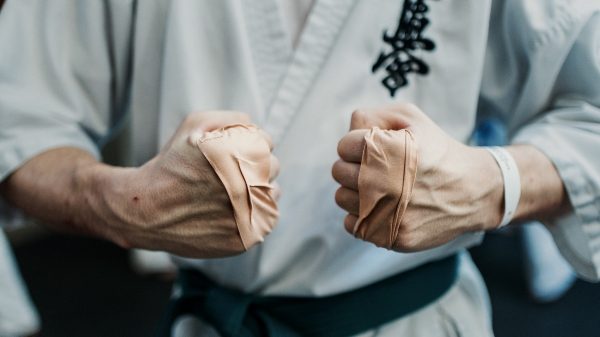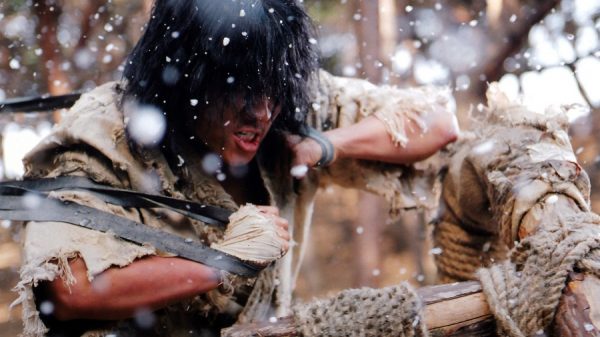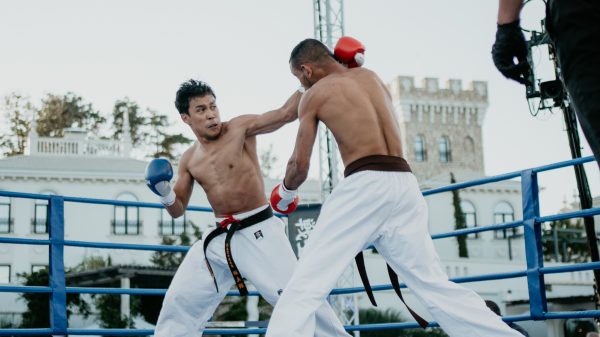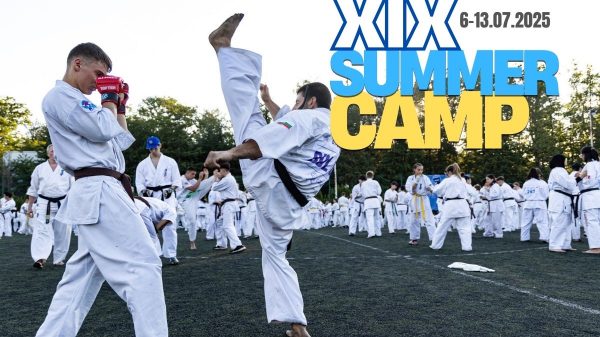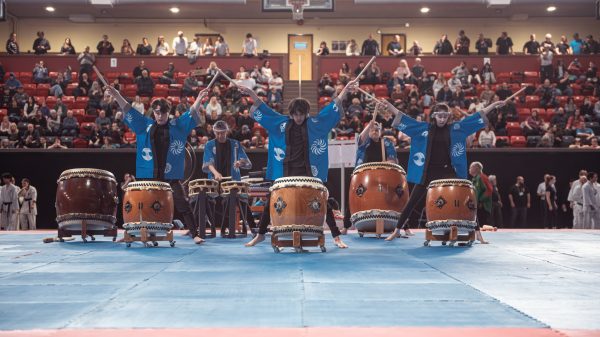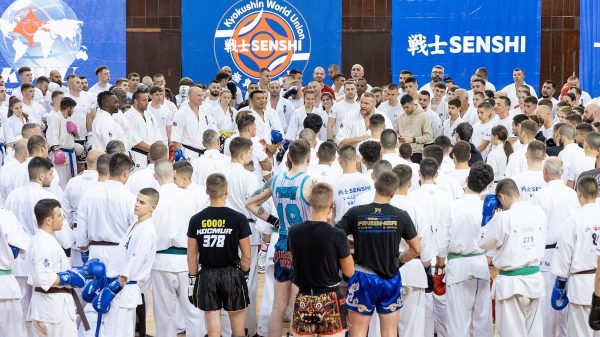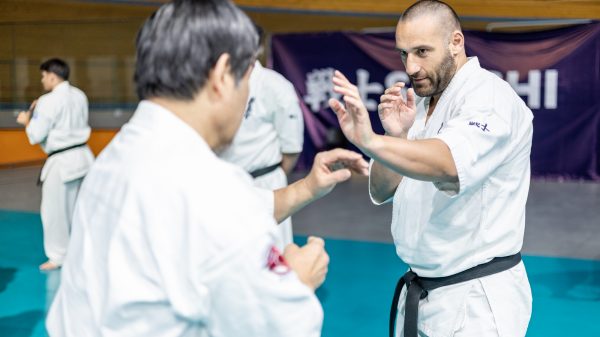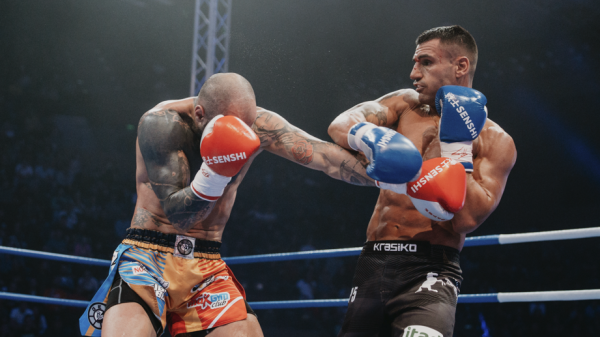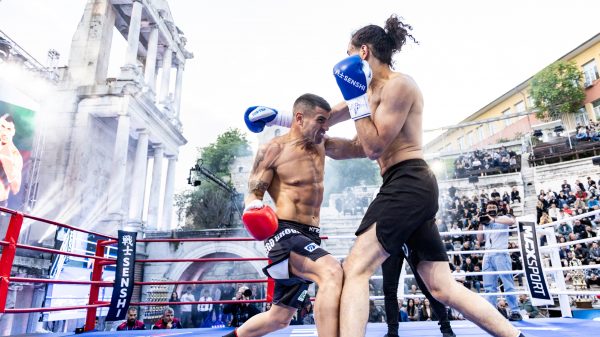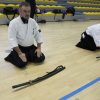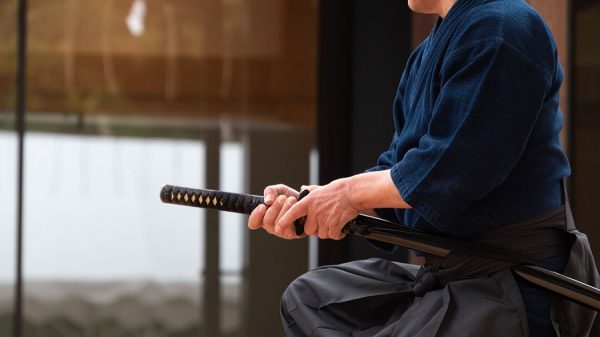Whether your martial art has you rolling on the ground and grappling, striking and sparring, or working with weapons (hopefully the unsharpened variety!), there are five common types of injuries martial artists tend to see. It is nearly impossible to avoid all injuries, but there are steps you can take to reduce your risk of injury that everyone who practices any martial art should be aware of.
Stress Fractures
One of the most common martial arts injuries, stress fractures occurs when bones are struck with repetitive force — think checking kicks in muay thai, or repeatedly hitting a heavy bag with inadequate wrist support. Stress fractures are also very common in runners’ feet and legs, so if you’ve recently upped your cardio to get in better shape for your art, be on the lookout!
Use wrist wraps under your gloves for extra support
Stress fractures are tiny cracks and fissures in the bone. A common sign of a stress fracture is pain that gets worse during exercise but lessens with rest. An injury of this sort usually requires around eight weeks of complete rest in order for the bone to heal properly.
If you feel as though you are pushing yourself too much, it would be wise to lessen the work or training you do in that area. Setting realistic goals and working with your body instead of against it can go a long way in sidestepping this type of injury.
Cuts, Scrapes, and Bruises
These are minor injuries, but they are incredibly common across all forms of martial arts. Preventing martial arts injuries of this kind is not 100% possible, but there are some easy things you can do to minimize your risk.
First of all, it goes without saying that you should always keep your guard up when sparring. This is when the majority of these injuries can occur. Secondly, wearing sparring gear can also reduce the impact of hits and thereby decrease the chance of these injuries. Impact-related injuries aside, have you ever seen what it looks like when a bit of loose Velcro from someone’s glove gets scraped across a face? It’s not pretty – but if you wear headgear, it won’t happen to you.
In grappling arts like Brazilian jiu-jitsu, you have to resign yourself to some mat burn. You can reduce how much you have to get by wearing well-fitting base layers underneath your gi or wearing long-sleeved rash guards in no-gi grappling.
Hamstring Injuries
This painful injury can occur when you tear or strain the hamstring muscles in the back of your thighs. The most likely time for this to happen is during kicks, such as a high kick.
Pro tip: Don’t do this if your hamstrings are injured
Oftentimes, doing proper stretches can loosen the muscles to help avoid this. Strength training and cross-training can prepare your body and train your muscles. Hurting yourself in this manner could mean a recovery period of up to eight weeks, so it is best to do everything you can do as a means of preventing martial arts injuries.
Groin Injuries
And no, not just the kind that can happen when you don’t wear a cup (wear a cup though, guys, seriously). Pulling a muscle in your groin is not an injury to take lightly, and can happen to anyone of any gender.
An injury to your groin can involve intense pain, tightness, and even muscle spasms. This often occurs when performing a kick, but can happen during other techniques as well. In order to prevent this from happening to you, make sure you stretch thoroughly both before and after you train as a form of warm-up and cool-down. It is also important to not push your body past its limits when practicing new moves. Take it slow and steady, and gradually work up to where you wish to be. That way, you can do your best to hopefully dodge this particular injury.
Ear Injuries
We all know what “cauliflower ear” – the knobby, swollen disfiguration around the outer edge of an ear – looks like. It’s common among wrestlers and grapplers, who get their ears squished and tugged and pressed as an almost daily training occurrence, and among boxers, who are stuck in the head and ears. Proper headgear does wonders in reducing your chances of developing this permanent look.
Cauliflower ear on a fighter
Strikers especially have another ear injury to watch out for ruptured eardrums. Even if the person striking you is wearing gloves (or shin guards), a sudden smack to the ear can rupture the eardrum. This can cause ringing in the ear and hearing loss. Again, headgear can help reduce your risk. You should also be careful to spar at your level, keep your guard up, and avoid training with bad partners.
Preventative Measures
Preventing martial arts injuries can be difficult since each case can be wildly different, but there are some steps you can take to help with overall body preparedness. These measures include the following:
- Warm up and cool down with stretches
- Wearing proper gear such as headgear and gloves
- Exercise (AT YOUR LEVEL!) outside of training to help keep your body fit
- Drink plenty of water to remain hydrated
In the event that you do sustain an injury, remember that the healing process is extremely important. During this time, allowing your body to rest and heal will go a long way to keeping your body fit and safe the next time you begin training.
Preventing martial arts injuries is not an easy task and not every injury can be avoided, such as bruises or cuts. However, there are actions you can take to assist your body before and after training. No matter which forms of martial arts you practice, learning proper technique, and being aware of common injuries can help keep you safe and healthy.
By Black Belt Team



